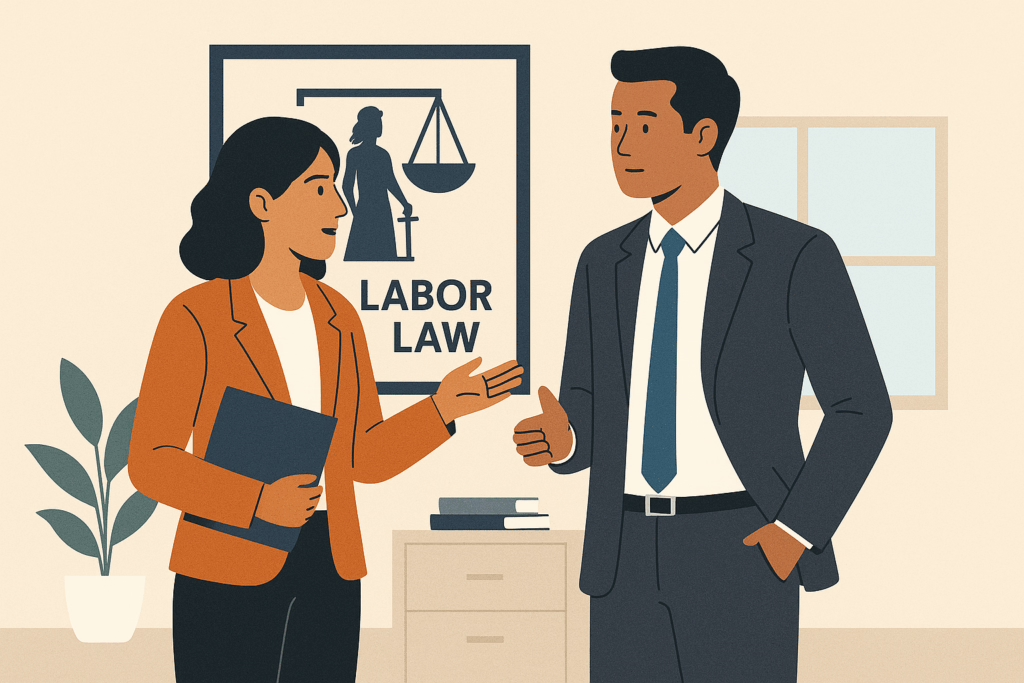Termination of Employment Without Severance Pay under Section 119 of the Thai Labour Protection Act : Guide from a Leading Law Firm in Bangkok

Employment termination is one of the most complex and sensitive aspects of labour law in Thailand. Employers and employees alike must understand when the law allows termination of employment without severance pay, particularly under Section 119 of the Thai Labour Protection Act B.E. 2541 (1998). This section sets out specific circumstances where severance obligations do not apply, but strict compliance is essential to avoid legal disputes.
As a leading law firm in Bangkok with extensive experience in labour litigation and advisory work, we regularly advise both multinational corporations and individual employees on how Section 119 operates in practice. This article provides a comprehensive breakdown of the seven legal grounds for termination without severance, supported by examples, practical tips, and relevant legal resources.
Understanding Section 119 and Its Legal Purpose
In most cases, an employer in Thailand must pay statutory severance to an employee who has worked for 120 days or more. However, Section 119 carves out exceptions where severance is not required. These exceptions are narrowly defined and strictly interpreted by the courts.
Full text of the Labour Protection Act (in Thai) can be accessed from the Ministry of Labour’s official website: Labour Protection Act B.E. 2541 (Thai version)
International standards on fair termination are also outlined by the International Labour Organization (ILO).
The Seven Legal Grounds for Termination of Employment Without Severance Pay
1. Fraud or Dishonesty in the Course of Duties
Employers may terminate without severance if the employee commits fraud or dishonest acts during their employment. This includes gaining personal benefit through abuse of position, even if the act is not a criminal offence.
Examples:
-
Using company vehicles for private profit-making deliveries.
-
Selling trade secrets to competitors.
-
Running a competing business while still employed.
Legal note:
Courts focus on whether the act represented a serious breach of trust. Even without direct financial loss, dishonesty that undermines the employment relationship can justify termination.
2. Criminal Offence Against the Employer
If an employee commits a criminal offence against the employer, termination without severance is allowed. Offences include theft, embezzlement, fraud, assault, and forgery.
Example:
Submitting falsified invoices for reimbursement.
Reference:
See the Thai Criminal Code (English translation) for offences applicable to employment disputes.
3. Intentional Damage to the Employer
Termination is lawful if the employee deliberately causes damage to the employer’s business or reputation, even without personal gain.
Examples:
-
Spreading false rumors to harm the company’s brand.
-
Deleting key client data intentionally.
Practical tip:
Employers must provide evidence of intent; accidental damage is treated differently under Section 119(4).
4. Gross Negligence Resulting in Serious Damage
An employee may be terminated without severance if they act with gross negligence , a level of carelessness significantly beyond normal mistakes , and cause serious damage.
Examples:
-
Incorrectly setting machinery parameters, destroying an entire production batch.
-
Leaving expensive goods unsecured, leading to theft.
ILO reference:
For global perspectives on negligence and misconduct, see ILO’s guide on dismissal for misconduct.
5. Violation of Employer Rules or Regulations
Section 119(5) distinguishes between serious and minor violations:
-
Serious violations (e.g., workplace violence, removing critical documents) allow immediate termination.
-
Minor violations (e.g., repeated lateness, minor dress code breaches) require a prior written warning within the past year.
Legal practice tip:
Document all rules clearly, distribute them to employees, and retain signed acknowledgements.
6. Unjustified Absence for More Than Three Consecutive Days
Termination is lawful if an employee is absent without valid reason for more than three consecutive working days. Weekends and holidays are included in the count.
Exceptions:
Force majeure events, such as floods or serious accidents.
Example:
Leaving work on Thursday and returning the following Tuesday without notice or proof of illness.
7. Imprisonment Under Final Court Judgment
Employers may terminate without severance if the employee is imprisoned after a final court judgment, regardless of whether the offence is related to work.
Exception:
If the offence was due to negligence or was a minor offence and did not harm the employer.
Common Pitfalls in Applying Section 119
-
Omitting Reasons in the Termination Letter
Even if a valid ground exists, failing to state it in writing can result in severance liability.
-
Misclassifying Misconduct
Not all undesirable behaviour qualifies under Section 119; some cases still require severance.
-
Weak Evidence
Employer allegations without credible documentation rarely stand in court.
Best Practices for Employers
-
Maintain detailed, accessible policies.
-
Keep records of violations, warnings, and investigations.
-
Seek legal review before executing a Section 119 termination.
Employee Rights and Remedies
Employees should:
-
Request written reasons for termination.
-
File complaints with the Department of Labour Protection and Welfare if they dispute the dismissal.
-
Retain employment records and communications.
Conclusion
The termination of employment without severance pay under Section 119 is a narrowly defined legal tool, not a general right for employers to dismiss staff. As a leading law firm in Bangkok, we have seen how both employers and employees benefit from understanding the precise scope of this law. Proper documentation, legal compliance, and proactive consultation with experienced counsel can prevent costly disputes.
For further legal guidance, review the full Labour Protection Act (Thai) or consult a qualified labour lawyer with experience in Section 119 cases.
